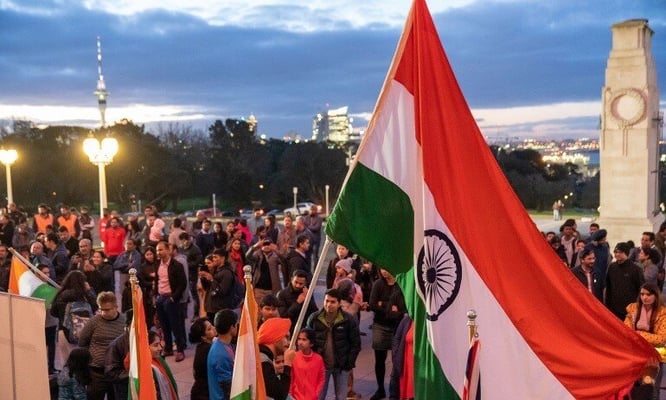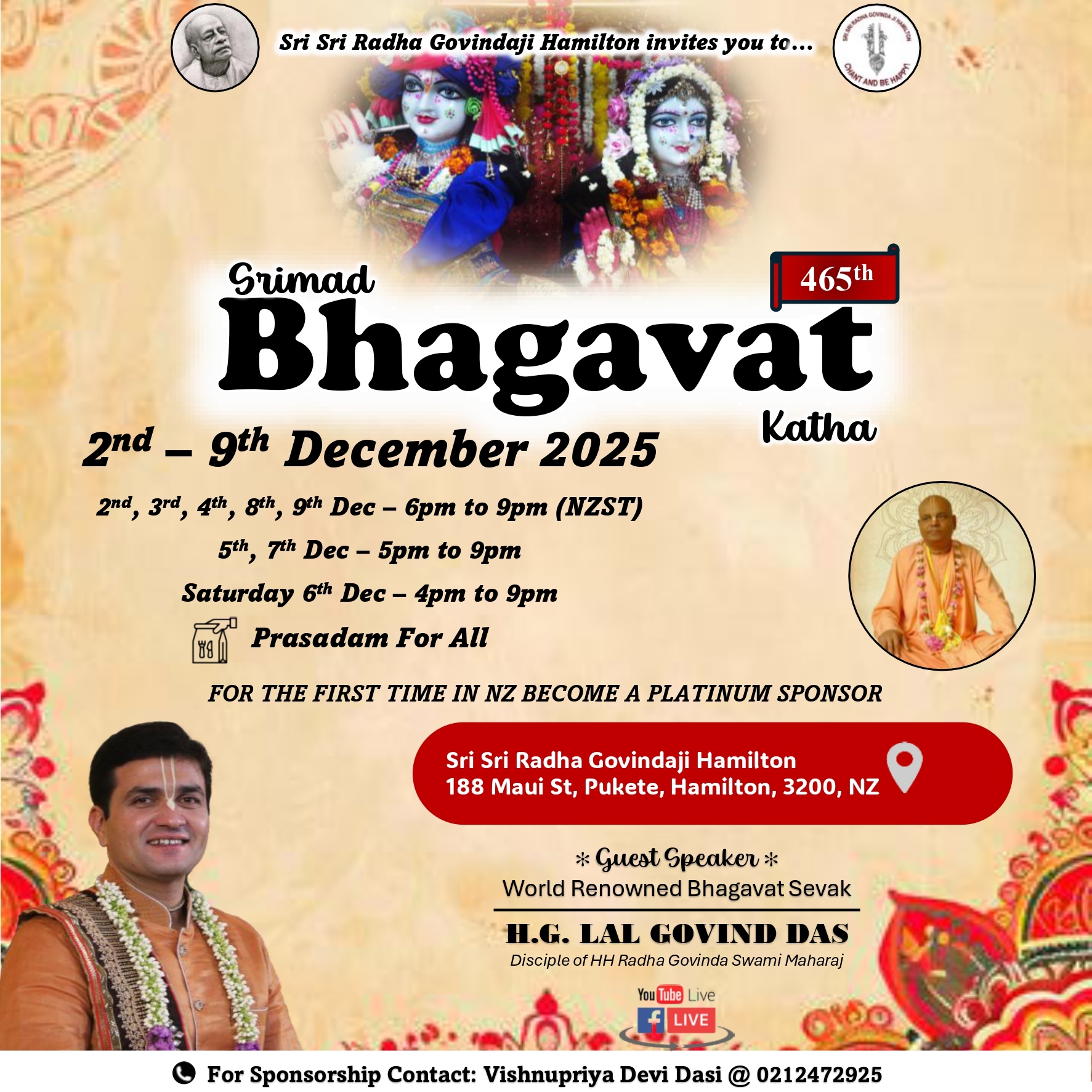India’s 71st Republic Day: Saluting the diaspora-connection with the ‘idea of India’

On January 26, India will be celebrating 71st Republic Day – a day to remember when India's constitution came into force on January 26, 1950, completing the country's transition toward becoming an independent republic.
The occasion will mark worldwide celebrations from the members of the Global Indian diaspora precipitating almost week-long celebrations from different places around the world located in different time-zones.
Needless to re-emphasise that New Zealand will have the opportunity to lead the celebrations of the global Indian diaspora purely because of its unique geographical situation.
Many community events and official events led by the Indian High Commission and the Consulate of India in Auckland are already lined up over the long weekend that would bring together different segments of the Kiwi-Indian community and stir-up their patriotic fervour.
For uninitiated, the Indian diaspora has a long and intrinsic connection with India dating back hundreds of years, which has evolved with time and the pace of India's progress and development.
In modern times, the earliest starting point of the diaspora connection with India can be traced back to the British suppression of the First War of Independence of 1857 that only led to the scattering of Indian rebels around the world, but also in cultivating a deep sense of connection with India.
In the ensuing years, patriotic Indians living overseas, either in exile or for study and work commitments were exposed to radical ideas and influences beyond the Indian-subcontinent that further fuelled the different streams of the Indian National Movement.
Those diasporic leaders after having exposed to overseas influences, and on many instances after having experienced the rebuke and the contempt for belonging to a subjugated nation, returned back to join hands with local (and indigenous) Indians who were already engaged in anti-colonial activities to liberate India from the oppressive British rule.
From leaders like Ghadar Party's Lala Hardayal and Lala Lajpat Rai to Mahatma Gandhi, Jawahar Lal Nehru and Sardar Vallabh Bhai Patel and many more to Azad Hind Fauj's Subhas Chandra Bose to seemingly ordinary members of diaspora community who raised the baton of rebellion and resistance like – the teenaged Tamil girls, born in rubber plantations of Malaya, who decided to shoulder guns for the independence of India, a country they had never actually seen – the connection between diaspora and India was forged permanently.
That embryonic connection between the diasporic communities and India forged in the earliest and probably darkest days in the history of modern India was gradually developed and inculcated permanently within the idea of India.
The present generations of the Indian diaspora living all around the world continue to lap-up the moment of national celebrations such as Independence Day and Republic Day with a great sense of pride and patriotic fervour.
In the recent decades, the mutual connections between India and its diaspora have been radically re-invigorated, largely in mutual appreciation of each other – the global Indian diaspora's success and growing prowess all around the world – and India's dramatic economic and technological advancement.
The relationship between India and its diaspora have been bolstered by the technology progresses and the advent of modern communication technologies, especially social media that has facilitated a robust engagement and debate about the future evolution of the idea of India.
While Indian diasporic communities continue to engage and debate about the idea of India, let's take an opportunity this republic day to come together and celebrate our intrinsic and eternal connection with each other.
Wish you all a happy Indian Republic Day.
On January 26, India will be celebrating 71st Republic Day – a day to remember when India's constitution came into force on January 26, 1950, completing the country's transition toward becoming an independent republic.
The occasion will mark worldwide celebrations from the members of the Global...
On January 26, India will be celebrating 71st Republic Day – a day to remember when India's constitution came into force on January 26, 1950, completing the country's transition toward becoming an independent republic.
The occasion will mark worldwide celebrations from the members of the Global Indian diaspora precipitating almost week-long celebrations from different places around the world located in different time-zones.
Needless to re-emphasise that New Zealand will have the opportunity to lead the celebrations of the global Indian diaspora purely because of its unique geographical situation.
Many community events and official events led by the Indian High Commission and the Consulate of India in Auckland are already lined up over the long weekend that would bring together different segments of the Kiwi-Indian community and stir-up their patriotic fervour.
For uninitiated, the Indian diaspora has a long and intrinsic connection with India dating back hundreds of years, which has evolved with time and the pace of India's progress and development.
In modern times, the earliest starting point of the diaspora connection with India can be traced back to the British suppression of the First War of Independence of 1857 that only led to the scattering of Indian rebels around the world, but also in cultivating a deep sense of connection with India.
In the ensuing years, patriotic Indians living overseas, either in exile or for study and work commitments were exposed to radical ideas and influences beyond the Indian-subcontinent that further fuelled the different streams of the Indian National Movement.
Those diasporic leaders after having exposed to overseas influences, and on many instances after having experienced the rebuke and the contempt for belonging to a subjugated nation, returned back to join hands with local (and indigenous) Indians who were already engaged in anti-colonial activities to liberate India from the oppressive British rule.
From leaders like Ghadar Party's Lala Hardayal and Lala Lajpat Rai to Mahatma Gandhi, Jawahar Lal Nehru and Sardar Vallabh Bhai Patel and many more to Azad Hind Fauj's Subhas Chandra Bose to seemingly ordinary members of diaspora community who raised the baton of rebellion and resistance like – the teenaged Tamil girls, born in rubber plantations of Malaya, who decided to shoulder guns for the independence of India, a country they had never actually seen – the connection between diaspora and India was forged permanently.
That embryonic connection between the diasporic communities and India forged in the earliest and probably darkest days in the history of modern India was gradually developed and inculcated permanently within the idea of India.
The present generations of the Indian diaspora living all around the world continue to lap-up the moment of national celebrations such as Independence Day and Republic Day with a great sense of pride and patriotic fervour.
In the recent decades, the mutual connections between India and its diaspora have been radically re-invigorated, largely in mutual appreciation of each other – the global Indian diaspora's success and growing prowess all around the world – and India's dramatic economic and technological advancement.
The relationship between India and its diaspora have been bolstered by the technology progresses and the advent of modern communication technologies, especially social media that has facilitated a robust engagement and debate about the future evolution of the idea of India.
While Indian diasporic communities continue to engage and debate about the idea of India, let's take an opportunity this republic day to come together and celebrate our intrinsic and eternal connection with each other.
Wish you all a happy Indian Republic Day.









Leave a Comment